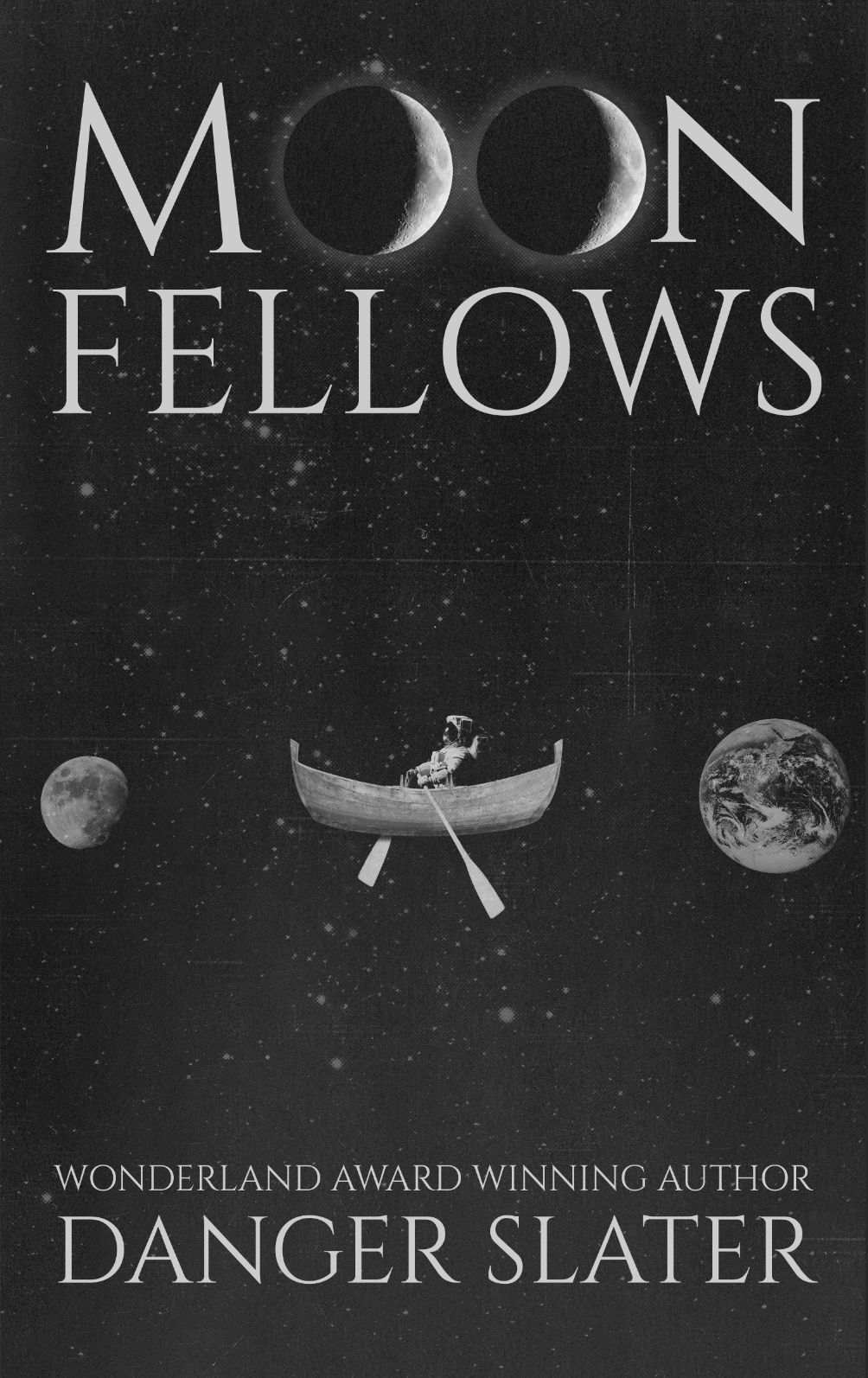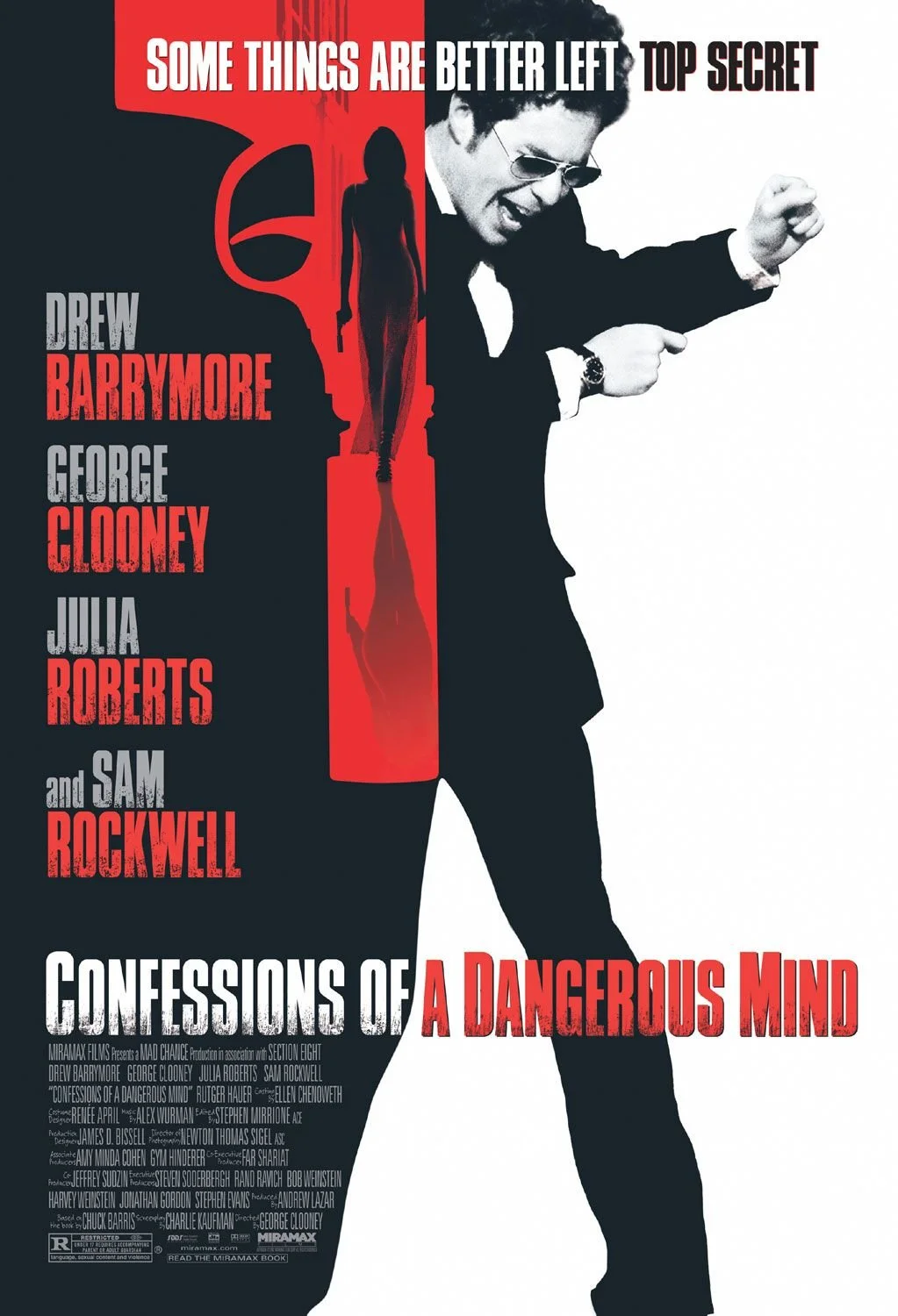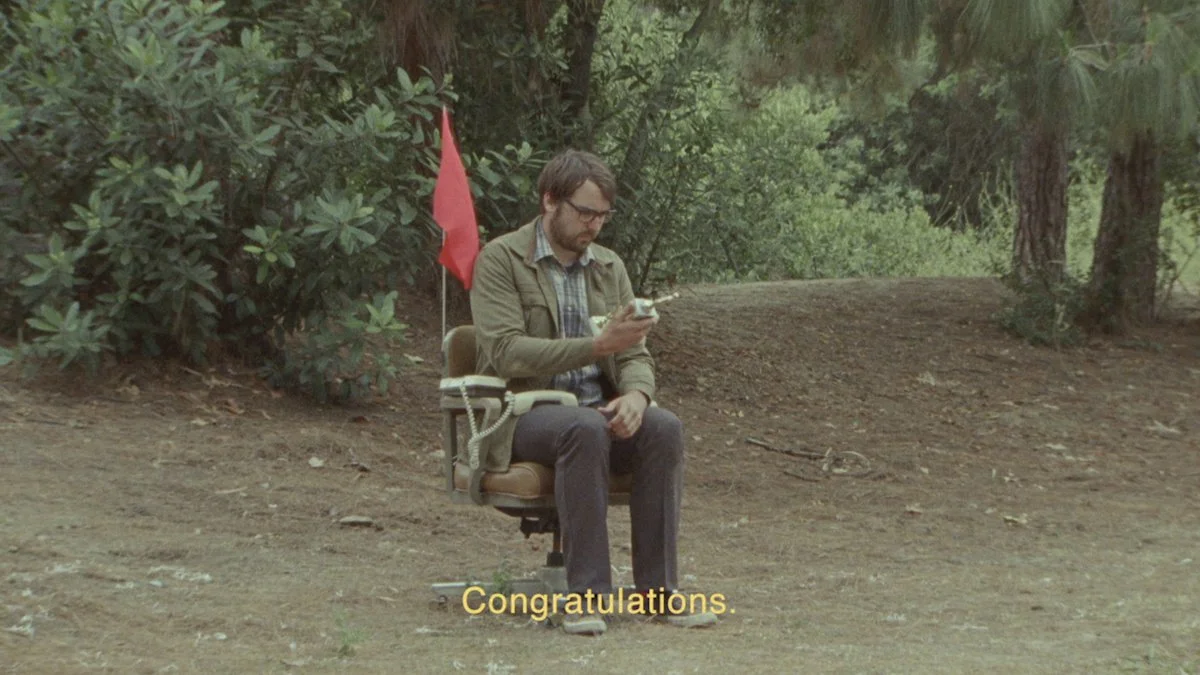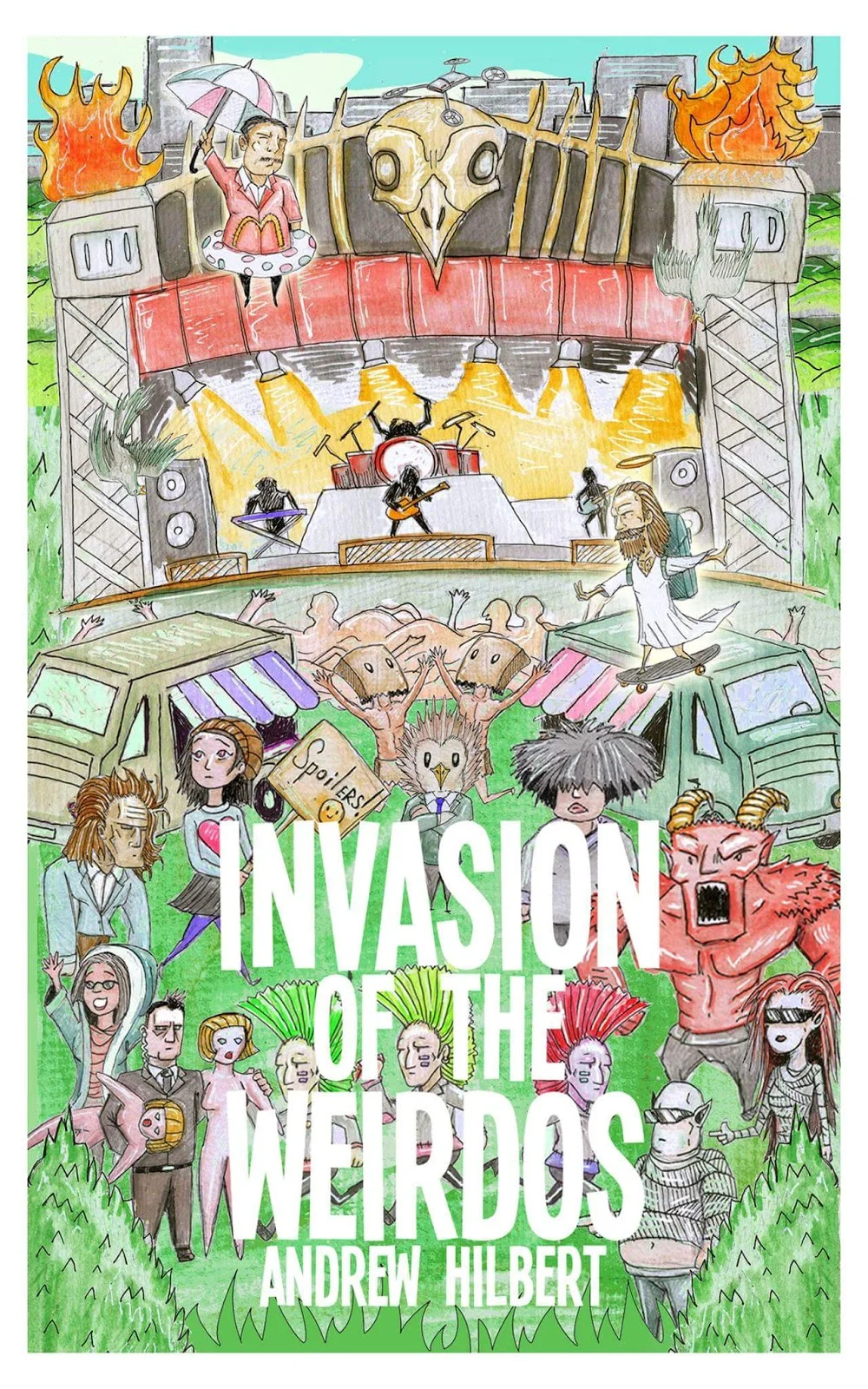Book Review : Danger Slater - Moonfellows (2022)
Conspiracy theories would be a lot more fun of less people believed them. If they were so blatantly false that even your dumbest friend could appreciate them for what they are: intellectual exercises born out of a mild dissatisfaction with reality and particularly how dumb reality can be at times. Danger Slater's novel Moonfellows is very much born out of a dissatisfaction with reality (like most novels), but it provides an alternative that is more fun to imagine than straightforwardly believe.
That makes it instantly cooler than any fake moon landing theory.
Moonfellows is narrated by an early twentieth century gravedigger named Franklin Rutherford Crumb who gets abducted by the government in 1906 to participate in something called the Moonfellow Program. The government basically shipped a handful of scientists (and one man who’s very good at digging) on the moon to dig up a precious mineral called MacGuffinite and just left them there. Crumb might've not been the brightest of them all, but he's the most hell bent on finding a way home.
The aesthetics of loneliness
The mere thought of a man stranded on the moon, far away from his family, is a bummer. What happens to Franklin Crumb in Moonfellows is objectively a horrendous tragedy, but it is narrated by a man who isn't aware of how disgusting what’s happening to him really is. He's just a good ol' American man trying to find his way home. But he's as likely to come home as a dog stranded on a desert island is. Moonfellows is a funny and imaginative story at heart, but it's also one about loneliness.
What makes Franklin Crumb such a viscerally endearing character is the contract between how hard he's trying to make himself useful and how dismissive everybody around him is of his skills and intellect. Because you can either be on the moon or in a Nebraksa corn field, if you don't feel lonely, you're not lonely. You're serene or contemplative or whatever. The hostility of the (very much imagined and openly unscientific) terrain in Moonfellows reflects the hostility of Franklin Crumb's situation.
The government conveniently left him behind. His other Moonfellows are getting in trouble and at each other's throat by dismissing his common man wisdom. He is forced to watch his wife and kid go on with their lives without him, which perversely also becomes one of his few pleasure up there in the sky. It might seem heavy when explained like this, but a straightforward and playful alternate history novel like Moonfellows really grounds itself emotionally with this unlikely tragic protagonist.
In other words, it wouldn't be as clever and funny if Crumb's situation wasn't so sad and desperate.
Neodadaism
I believe Danger Slater still claims himself to be part of the bizarro fiction scene, which is an all-encompassing term for a type of literature with a no holds barred approach to creativity, but Moonfellows is really what you could call neodadaism. A form of art that eschews logic and reason, but also edgier topics like war, violence and nationalism. It's a humorous false naïveté meant to explore a more childlike approach to creation. Moonfellows might barely qualify as childlike, but children could enjoy it.
The obvious inspiration for the novel (which Slater admitted in the acknowledgement section) is Georges Méliès' early century movie Le Voyage dans la Lune, which shows how primitively common people thought about the moon and astronomy-related topics then. There's also influence from Wes Anderson and the Coen brothers in the tone and dry-wit humor of Moonfellows more than in its aesthetics. I also couldn't shake up the idea of Sam Rockwell playing Crumb. Dude was born to play naive astronauts.
*
It's really hard to dislike a novel like Moonfellows. It's short. It has short chapters. It tells a wild, creative story and is narrated by a no nonsense early century All-American man. It's not a transcendent emotional journey, but it doesn't pretend to be and it does get into your bloodstream by the end. You could also read it instead of browsing YouTube channels that tells you that a politician elected two hours ago is lying to you about every aspect of reality. C’mon, tinfoil hat dude. You know you want it.






